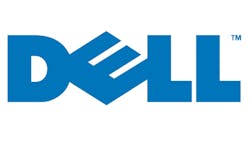Dell to Return to Public Markets with Tracking Stock Buyout
Dell Technologies Inc., the world’s largest private technology company, announced plans to trade publicly again, entering a new stage of a multi-year turnaround plan.
The tech giant will return to public markets by subsuming its tracking stock, DVMT, in a cash and share-swap deal, Round Rock, Texas-based Dell said in a filing Monday. The shares, currently worth about $17 billion, are meant to mirror the value of software maker VMware Inc., in which Dell has a controlling stake.
As part of the deal, VMware will pay DVMT shareholders an $11 billion special cash dividend and Dell will offer more shares—or cash—to make up the difference, giving a total deal size of $21.7 billion. Dell Technologies Class C common stock will become publicly listed on the New York Stock Exchange.
Chief Executive Officer Michael Dell has considered a variety of options to streamline his multicompany tech empire and help the business manage a massive debt load. Bloomberg first reported earlier this year that Dell was considering subsuming the tracking stock. Other options have included a Dell public offering or combination with VMware, Dell said in a January filing. Under closely held ownership, Dell has sought a new direction in a more challenging market for hardware makers, diversifying away from its namesake PCs and closer to software.
Holders of DVMT shares —also known as Dell Technologies Class V—will have the option to either swap their shares for Dell’s Class C common stock, or take $109 in cash per Class V share. The offer is a 29% premium to Class V’s closing price Friday. The deal is expected to close in the fourth quarter of 2018.
The transaction "has merit merit, after notable financial and operational performance gains since Dell went private," said Anand Srinivasan, technology analyst at Bloomgerg Intelligence, adding that "Dell’s stock issue comes with high expectations, particularly versus Hewlett Packard Enterprise and NetApp."
DVMT shares were up 13.7% in pre-market trading in New York. VMware shares were up 12.3%.
Dell has undergone five years of corporate machinations, resulting in a tangled corporate structure. Founder Dell took the company private for about $25 billion in 2013 with investment firm Silver Lake. The tracking stock was created to help Dell finance its $67 billion purchase of data storage company EMC Corp. in 2016, the largest technology takeover ever at the time. The deal was mostly cash, but the rest was paid through the new security linked to part of EMC’s interest in VMware. EMC owned a controlling stake in VMware and the rest of VMware is publicly traded, as is the DVMT tracking stock.
DVMT has almost doubled since the stock was issued, closing at $84.58 on Friday. VMware, based in Palo Alto, California, makes virtualization software that helps maximize workloads on servers, as well as cloud and device management tools.
Once a household name for its line of personal computers, Dell has expanded to compete in a broader swath of the IT market. It’s now known for its lineup of servers, storage hardware and networking gear. Through its EMC acquisition, it also now has a growing suite of software tools in its arsenal. The company has sought a symbiotic relationship with its hardware and software—chasing closer integrations between the two and selling both to customers to extract higher profit margins.
The company, which missed out on the cloud-computing wave, has tried to develop next-generation solutions to enable the Internet of Things, in which everyday devices will be digitally connected and businesses will need more computing power away from centralized data centers. It has tried to revamp itself as a cloud player by offering customers software from a suite of smaller companies in which it’s invested, in a bid to take back sales from Amazon.com Inc. and Microsoft Corp.
Dell has fostered tighter product integrations with VMware that help manage customer workloads with Dell hardware and VMware software. The companies also each sell each other’s products to existing and new customers. VMware will remain a stand-alone company, and Dell will continue to own 81 percent of VMware’s common stock.
Dell’s debt almost tripled with its purchase of EMC. Even after paying down billions, Dell still has $52.7 billion in debt, including its subsidiaries.
About the Author
Bloomberg
Licensed content from Bloomberg, copyright 2016.
